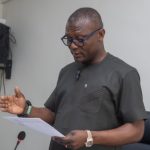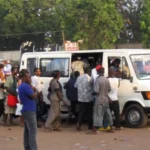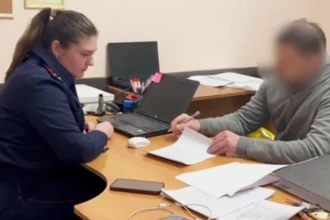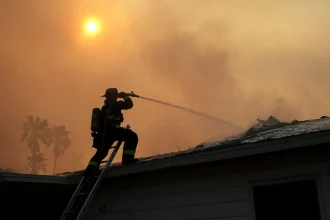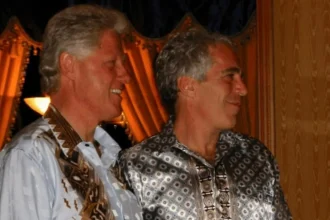The Wagner mercenary leader Yevgeny Prigozhin remains under Russian investigation for his mutiny, despite the Kremlin saying criminal charges had been dropped, state media report.
Prigozhin said on Monday his group’s aim had been to “avoid the destruction of Wagner”, in his first message since Saturday’s rebellion.
Wagner occupied Rostov-on-Don in the south, then advanced towards Moscow.
But hours later they turned back and charges were dropped, the Kremlin said.
Many felt the apparent deal not to prosecute him showed weakness from President Vladimir Putin, who had earlier denounced Wagner’s “treason” in a televised address.
Instead, Prigozhin was offered exile in neighbouring Belarus, the Kremlin said, following mediation by Belarus leader Alexander Lukashenko.
The Kremlin tried to project an image of business as usual on Monday.
Defence Minister Sergei Shoigu was shown in a video, allegedly at a forward command post for the war on Ukraine.
It is not clear exactly when that was filmed.
Wagner had been demanding that Mr Shoigu be sacked for his alleged mistakes on the battlefield in Ukraine.
In his first appearance since the weekend turmoil, President Putin gave a video address on Monday to engineers attending an industry forum, in which he lavishly praised their contributions to the Russian economy.
And Prime Minister Mikhail Mishustin urged his team to unite behind Mr Putin.
Operation “restore Putin’s reputation” is now in full swing, the BBC’s Eastern Europe Correspondent Sarah Rainsford says.
In an 11-minute audio message on Telegram on Monday Prigozhin said he did not target President Putin and had no desire to overthrow the regime when he declared his troops would march on Moscow last Friday.
He said Wagner had sought to “hold accountable those people who made a huge number of mistakes during the special military operation [in Ukraine] with their unprofessional actions”.
Although Wagner fights on the same side as the Russian military, Prigozhin has long been critical of how the war has been fought.
He said the group marched to stop Wagner being disbanded and incorporated into Russia’s defence ministry, and that he ordered his troops to turn back “to avoid spilling the blood of Russian soldiers”.
The mercenary boss did not reveal his location during the message, but did say Mr Lukashenko had offered Wagner a way to maintain its independence.
It was the first time Prigozhin had spoken since agreeing to abort his mutiny attempt late on Saturday.
On Saturday morning, Wagner seized Rostov-on-Don, a city of more than a million people where the military command centre for Russia’s campaign in Ukraine is located.
Then a Wagner column headed north towards Moscow via the city of Voronezh, triggering a state of emergency in the capital and around it.
Before the agreement to end the march, Mr Putin addressed the nation to condemn Wagner. He did not mention Prigozhin – formerly a close ally – by name, but promised to punish those who had led the mutiny for “treason” and what he called “a stab in the back” of Russia.
Hours later, the mercenaries turned round and left Rostov-on-Don, but the apparent deal involving Belarus left many questions unanswered.
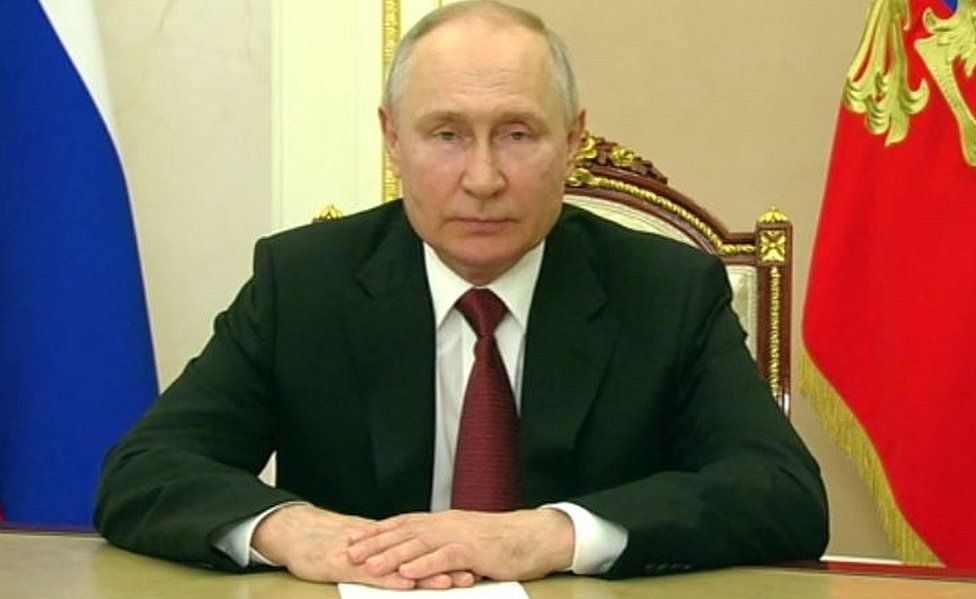
The Kremlin has vowed to incorporate Wagner into the regular Russian armed forces.
But Wagner was still openly recruiting into its own ranks on Monday for service in Russia’s “special military operation” in Ukraine.
A notice on Wagner’s Telegram channel offers new recruits a minimum of 240,000 roubles a month (£2,236; $2,843) – a fortune for most Russians, especially those in poor regions. It lists call-up centres across Russia, the main one being at Molkino in the far south.
In the eastern Siberian city of Novosibirsk the mercenary group was also recruiting, Russia’s Tass news agency reported. The Wagner office there had been shut down on Saturday – but on Monday its banners were on display there again.
Wagner has long been seen as a key tool in Mr Putin’s ambition to restore Russian influence globally.
Amid continuing confusion about Wagner’s status, Foreign Minister Sergei Lavrov said on Monday that the group would continue its military role in Mali and the Central African Republic (CAR).
Wagner fighters have a reputation for brutality in Africa and have played a key role in Syria supporting President Bashar al-Assad’s forces.
In Ukraine, months of bitter fighting in the devastated city of Bakhmut is believed to have cost thousands of Wagner men’s lives.
In an expletive-laden video ahead of the Wagner mutiny, Prigozhin accused the defence ministry of depriving his men of the arms they needed.
Bakhmut remains the only Russian military gain of any note in more than six months of heavy fighting. And Ukraine says its forces have pushed the Russians back around Bakhmut in recent days.



